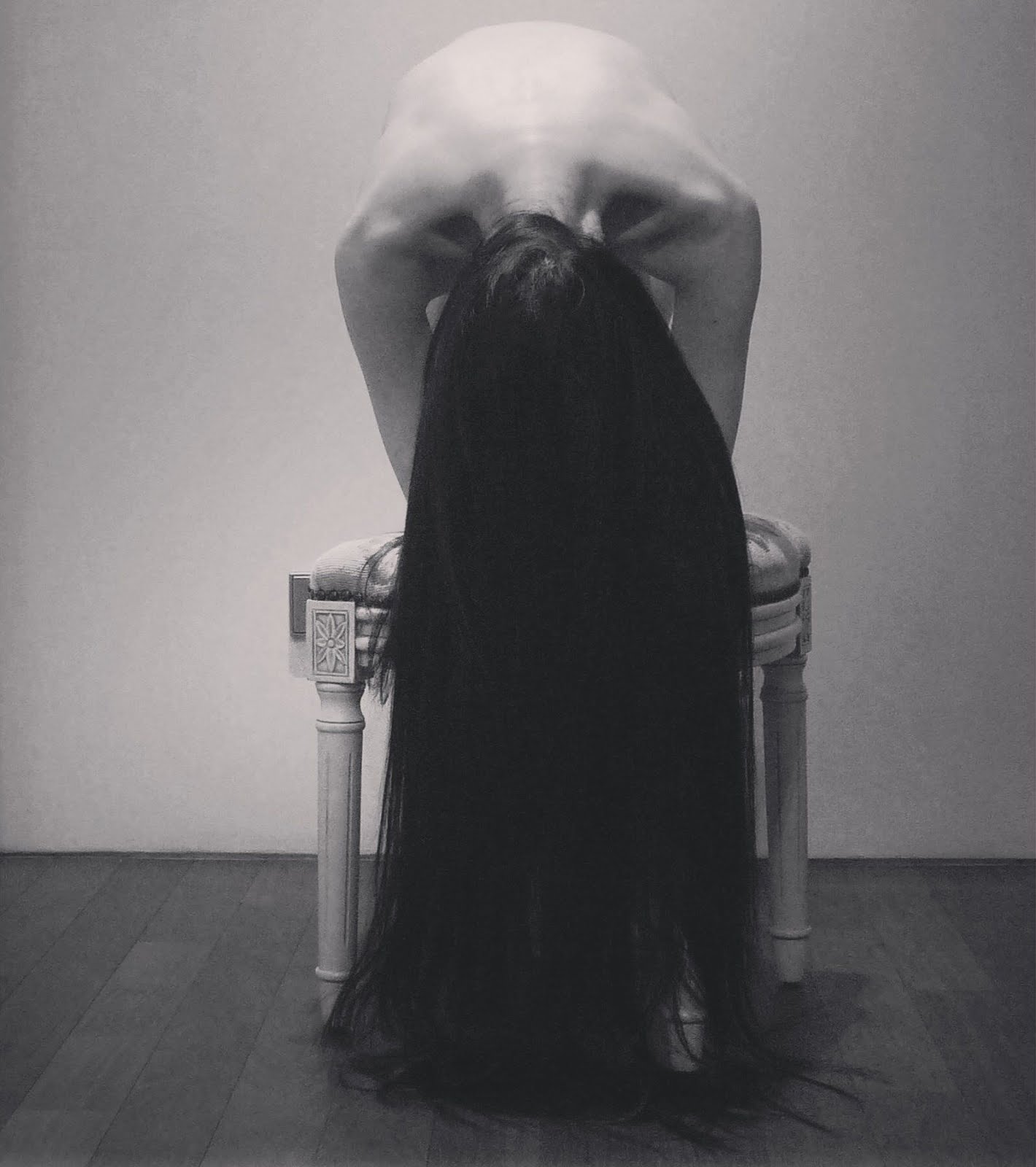 |
| Miss Horatia Feilding, half-sister of William Henry Fox Talbot, playing the harp, c. 1842 |
Scents, with their eyelids heavy,
from the oneiric sketches of our broken poems:
a muser and a paresseuse
dreaming
of ephemeral truths, dreaming
in the absence of dreams.
an evanescent truth
less sorrowful; that truthful ephemerality
even less perceivable...
the memory of a door lies in its unrecoverable closedness
to a space imagined,
—traversed and touched only by a fingertip—
to what is left open
and songs sung
to eyes half asleep
~my sketch composed on 19th September ’15
+
“Time present and time past
Are both perhaps present in time future,
And time future contained in time past.
If all time is eternally present
All time is unredeemable.”
― T. S. Eliot, Four Quartets: Burnt Norton, 1936
 |
| William Henry Fox Talbot, photogenic drawing negative using botanical specimens from his garden, taken in 1839, the year he announced his discoveries in photography. |
+
天空持續燃放著
無聲的煙火
我們停步
牽著手
於彼大澤
和一隻鹿對望
良久
有鹿
有鹿哀愁
食野之百合
The silent fireworks continued
to burn across the sky
We stopped
and held our hands
We laid our gaze upon the deer
opposite the enormous swamp
gazing back at us
for a long time
There was a deer
There was a deer of sorrow
that grazed upon wild lilies
~《有鹿》許悔之, a poem by Taiwanese poet Hsu Huei-Ji; translated from the Chinese into English by me.
+
“Everything is blooming most recklessly;
if it were voices instead of colors,
there would be an unbelievable shrieking
into the heart of the night.”
~Rainer Maria Rilke
 |
| Peak of Dawn, photograph by Katsuyoshi Nakahara, for National Geographic Your Shot. Shirley poppies bloom in a field near Japan’s Mount Tsukuba, here silhouetted against an early morning sky. The mountain—which can be ascended via a hiking trail or cable car—has two peaks, each rising more than 2,800 feet. |
+
to sleep
bed’d among flowers
for scent
to wake lovers
children become
mothers and fathers
+
“Often the object of a desire,
when desire is transformed into hope,
becomes more real than reality itself.”
― Umberto Eco, The Book of Legendary Lands
 |
| detail from an Edgar Degas painting |
+
“At first he told them that everything was just the same, that the pink snails were still in the house where he had been born, that the dry herring still had the same taste on a piece of toast, that the waterfalls in the village still took on a perfumed smell at dusk. They were the notebook pages again, woven with the purple scribbling, in which he dedicated a special paragraph to each one. Nevertheless, and although he himself did not seem to notice it, those letters of recuperation and stimulation were slowly changing into pastoral letters of disenchantment. One winter night while the soup was boiling in the fireplace, he missed the heat of the back of his store, the buzzing of the sun on the dusty almond trees, the whistle of the train during the lethargy of siesta time, just as in Macondo he had missed the winter soup in the fireplace, the cries of the coffee vendor, and the fleeting larks of springtime.
Upset by two nostalgias facing each other like two mirrors, he lost his marvelous sense of unreality and he ended up recommending to all of them that they leave Macondo, that they forget everything he had taught them about the world and the human heart, that they shit on Horace, and that wherever they might be they always remember that the past was a lie, that memory has no return, that every spring gone by could never be recovered, and that the wildest and most tenacious love was an ephemeral truth in the end. ”
― Gabriel García Márquez, One Hundred Years of Solitude
 |
| William Henry Fox Talbot (English, 1800-1877), Lace, photogenic drawing negative, before December 1845, 17.1 x 22.1cm, The J . Paul Getty Museum |
Aimai-je un rêve?
Mon doute, amas de nuit ancienne, s’achève
En maint rameau subtil, qui, demeuré les vrais
Bois même, prouve, hélas! que bien seul je m’offrais
Pour triomphe la faute idéale de roses.
“Did I love a dream?
My doubt, night’s ancient hoard, pursues its theme
In branching labyrinths, which being still
The veritable woods themselves, alas, reveal
My triumph as the ideal fault of roses.”
~from Stéphane Mallarmé’s poem L’après-midi d’un faune, translated by Henry Weinfeld (read also A.S. Kline's translations of Mallarmé’s poetry)
Mon doute, amas de nuit ancienne, s’achève
En maint rameau subtil, qui, demeuré les vrais
Bois même, prouve, hélas! que bien seul je m’offrais
Pour triomphe la faute idéale de roses.
“Did I love a dream?
My doubt, night’s ancient hoard, pursues its theme
In branching labyrinths, which being still
The veritable woods themselves, alas, reveal
My triumph as the ideal fault of roses.”
~from Stéphane Mallarmé’s poem L’après-midi d’un faune, translated by Henry Weinfeld (read also A.S. Kline's translations of Mallarmé’s poetry)
 |
| William Henry Fox Talbot, Adiantum Capillus-Veneris (Maidenhair Fern), photogenic drawing negative, probably early 1839, 22.5 x 18.3cm. |
+
“It is the job of poetry to clean up our word-clogged reality by creating silences around things.”
“Everything that is sacred and that wishes to remain so must envelop itself in mystery.”
“For me, Poetry takes the place of love, because it is enamored of itself, and because its sensual delight falls back deliciously in my soul.”
~Stéphane Mallarmé
“Everything that is sacred and that wishes to remain so must envelop itself in mystery.”
“For me, Poetry takes the place of love, because it is enamored of itself, and because its sensual delight falls back deliciously in my soul.”
~Stéphane Mallarmé





No comments:
Post a Comment